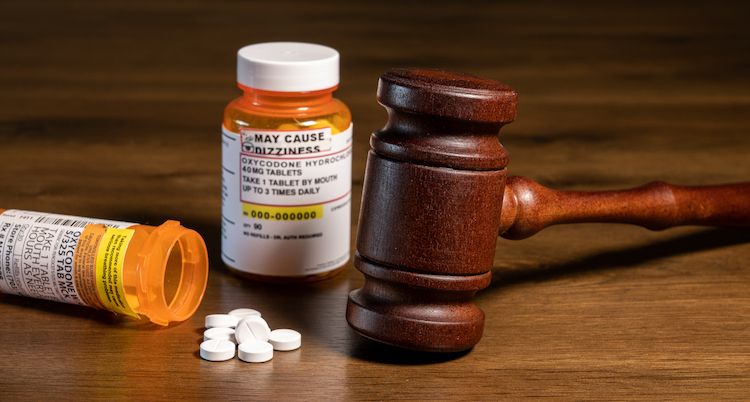Opioid suits can't be based on nuisance law in Ohio, top state court rules in $650M win for pharmacies

Image from Shutterstock.
A decision by the Ohio Supreme Court on the state’s product-liability law is good news for three national pharmaceutical chains ordered to pay more than $650 million for contributing to the opioid epidemic.
The state supreme court ruled Dec. 10 that the Ohio Product Liability Act eliminated all common-law nuisance claims in connection with the sale of products, Court News Ohio reports. The state supreme court ruled after the 6th U.S. Circuit Court of Appeals at Cincinnati asked for a ruling on the impact of the state law as amended.
The 6th Circuit certified the question to the Ohio Supreme Court in an appeal of a $650.6 million judgment against CVS, Walmart and Walgreens. The lawsuit was among several bellwether cases used to test claims and defenses chosen from about 3,000 opioid suits consolidated in the U.S. District Court for the Northern District of Ohio.
Two Ohio counties had contended that the damages awarded were for abatement of the nuisance, rather than for compensatory damages. As a result, the law didn’t bar their claims, they argued.
The Ohio Supreme Court ruled, however, that the type of relief requested is immaterial under the law as written. The state supreme court also rejected the counties’ claim that the nuisance suit didn’t meet the definition of a product-liability claim because there were no allegations of a product defect.
The three drug companies praised the ruling, Bloomberg Law reports. Walgreens said in a statement the decision “allows us to put this litigation behind us so we can continue focusing on the health and well-being of our patients, customers and team members in northern Ohio and across the country.”
Peter H. Weinberger represented the plaintiffs—Lake County and Trumbull County in Ohio. He told Bloomberg Law that the decision “will have a devastating impact on communities and their ability to police corporate misconduct.”
Nationwide, he said, opioid settlements with drugmakers, distributors and pharmacies total nearly $60 billion. The Ohio Supreme Court’s decision “undermines the very legal basis that drove this result,” Weinberger told Bloomberg Law.
The Ohio Supreme Court is the second top state court to rule that public-nuisance laws cannot be used in opioid suits.
The Oklahoma Supreme Court held in November 2021 that Johnson & Johnson’s opioid marketing did not create a public nuisance because it concerned the sale of a lawful product. The decision overturned a $465 million verdict.



